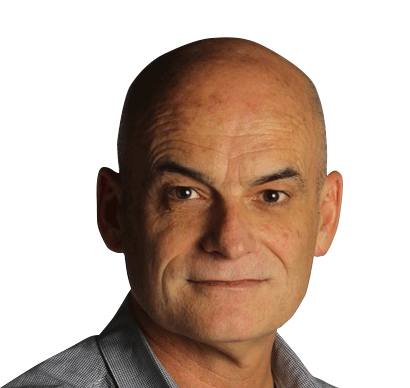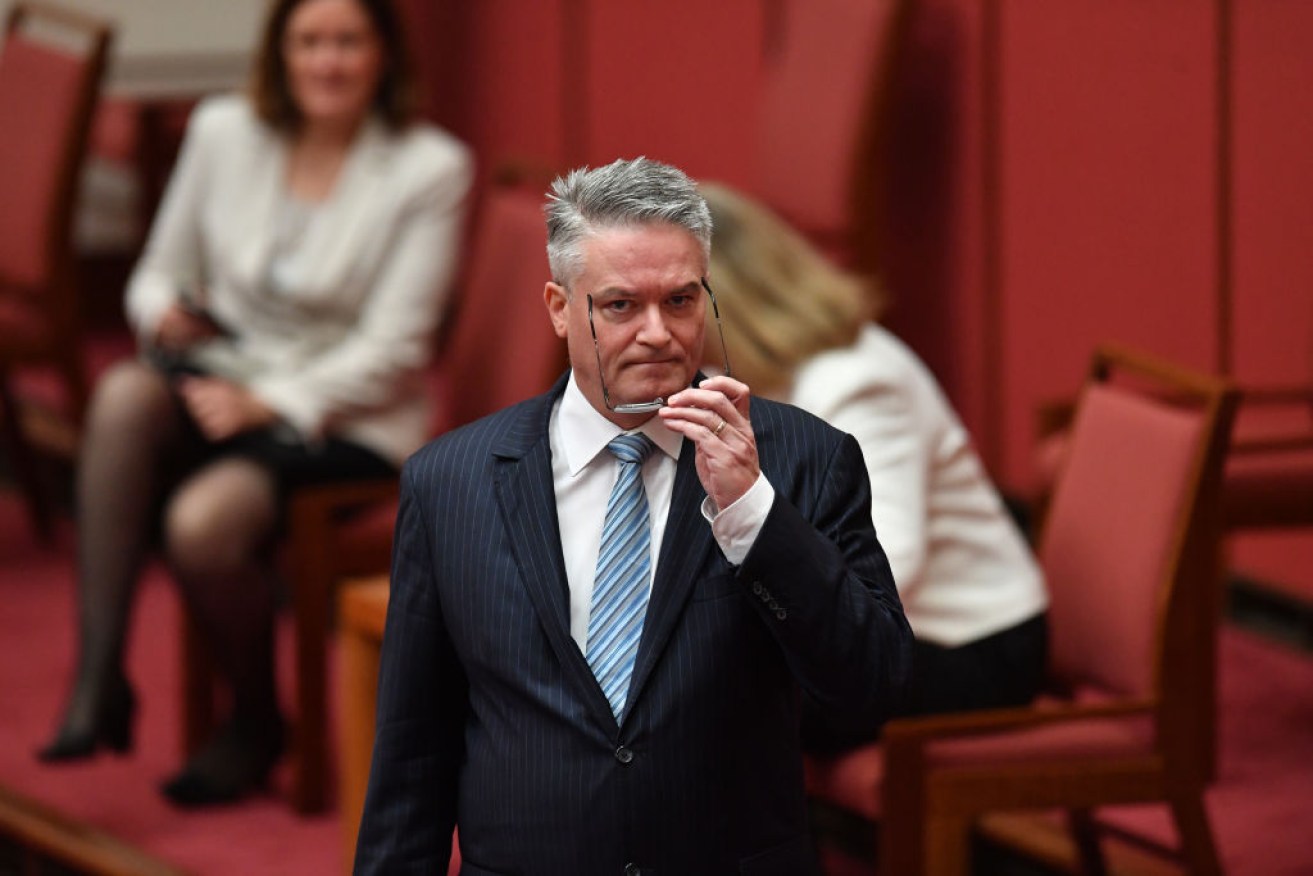Garry Linnell: Every family has ‘that’ relative. Australia’s is Mathias Cormann


Senator Mathias Cormann is the uncle we all try to avoid, Garry Linnell writes. Photo: Getty
You know how it is.
You’re at one of those family gatherings where everyone casts nervous glances at the door.
Is he here yet? Will he turn up?
The kids are playing in the backyard. The adults are gathered around the barbecue. Everyone is chatting politely and thinking the same thing:
Please don’t let him show up and ruin another gathering.
And then comes the knock on the door. Everyone swallows as they hear the voice they have been dreading.
“Hi everyone. Sorry I’m late.”
The door bursts open and he charges in.
He’s wearing a stained Hawaiian shirt and carrying a cheap flask of wine when he accidentally stands on the dog’s tail, knocks over an antique vase, farts loudly, launches a loud wolf whistle at your son’s girlfriend before unleashing another round of tone-deaf comments.
“Bloody hell, Joyce. You’ve been in a good paddock. How much weight have you put on then? Oh, hello Max. How’s that divorce going? That ex-missus of yours still bonking that young personal trainer you hired for her last birthday?”
You know how it is.
Every family has one. Before he falls asleep in the corner, snoring loudly with a lampshade over his head, he manages to spit out a series of shallow remarks guaranteed to misread every situation.
Happened again this week.
Just as the Australian family was getting together after months of lockdown, Mathias Cormann reminded everyone why the Minister for Finance possesses one of the worst sets of tin ears in federal politics.
After tens of thousands rallied on city streets as part of the ‘Black Lives Matter’ movement to denounce racism and demand an end to Indigenous deaths in custody, Senator Cormann labelled the protests as “incredibly selfish, it’s incredibly self-indulgent … it’s quite irresponsible what we’ve seen there”.

Finance Minister Mathias Cormann called protesters “incredibly selfish”. Photo: AAP
Despite a Supreme Court ruling in NSW that lawfully allowed the Sydney protest to proceed, and with cases of community transmission of coronavirus at close to zero, Senator Cormann echoed the sentiments of a slew of right-wing commentators denouncing the protests.
“It is inappropriate and a complete double standard,” he said.
“People ought to comply with the rules that apply to everybody else.”
Speaking of double standards, who can forget Senator Cormann’s comments just a few months ago, as the pandemic began sweeping the world and the jobless rate began to soar?
As hundreds of thousands of Australians joined the unemployed queue or were forced to take significant pay cuts, Senator Cormann quickly dismissed suggestions that federal MPs should also experience a wage reduction as a token but significant gesture of solidarity.
“I’m not sure how this sort of suggestion would help,” he said with one hand cupped to his tin ear.
“In the context of the budget challenge, it’s essentially at the margin.”
Certainly, the timing of last weekend’s protests made many people feel uncomfortable.
After months of national lockdowns and growing economic despair, mass demonstrations with a political and humanitarian tone were always going to arouse passions and suspicions.
But where is the evidence that these rallies triggered widespread outrage and contempt in the general community?
As the Queen’s Birthday long weekend got into swing in many Australian cities, large groups of people gathered on beaches, queued in supermarkets and bunched closely together at cafes.
I lost count of the number of times the 1.5-metre social distancing rule had been forgotten.
Apart from the odd face mask, it looked like a scene from any long weekend, with families fearing only the appearance of a relative with a tin ear.

Protesters holding up signs on Melbourne’s Bourke Street during the protest. Photo: Getty
But while these old-fashioned displays of Australian complacency were taking place, the rallies were a sign of how this country has begun to change.
Could it be – finally – that we are ready to confront and come to terms with the racial stains of our past and present?
If we have always done our best to look away and pretend they don’t exist, those stains are now hard to hide.
More than 430 Aboriginal people have died in police custody in the three decades since a royal commission was appointed to investigate that very same issue.
It’s an extraordinary number and a breathtaking indictment on our capacity to care for a culture we spent more than a century trying to eliminate.
More than 50 years ago the influential anthropologist William Stanner dubbed our refusal to recognise the brutality inflicted on Indigenous Australians since European settlement as The Great Australian Silence.
If this silence was not a conspiracy, it was at least a determined collective effort to avoid the topic.
The Great Silence settled over Australian culture. It numbed our awareness, deadened our empathy and compassion and washed through our high school history books.
It’s why you and I were taught fairy tales about white settlement and never read about men like Frederick Taylor, who massacred almost 40 men, women and children of the Tarnbeere gundidj clan of the Djargurd Wurrung near Mt Emu Creek in western Victoria in 1839.
The latest round of Black Lives Matter rallies might have been triggered by the death of George Floyd, who suffocated after a Minneapolis police officer kneeled on the back of his neck for more than eight minutes.
But in Australia those demonstrations are also a sign that the era of The Great Australian Silence is finally drawing to a close.
If only Mathias Cormann could be so quiet.
Garry Linnell was director of news and current affairs for the Nine network in the mid-2000s. He has also been editorial director for Fairfax and is a former editor of The Daily Telegraph and The Bulletin magazine








